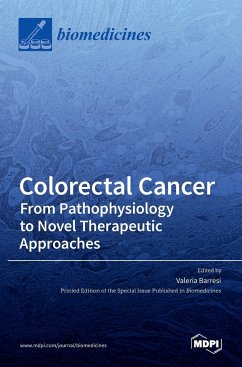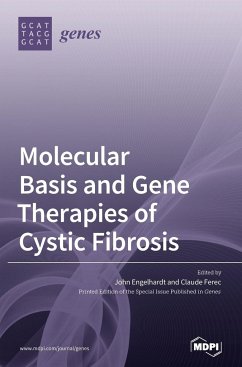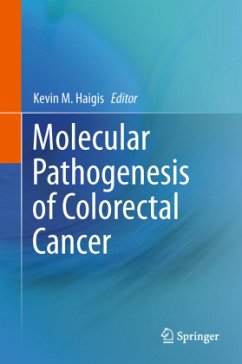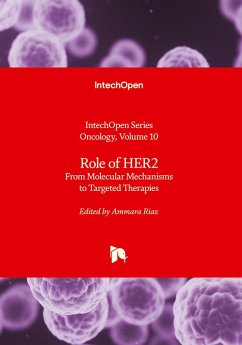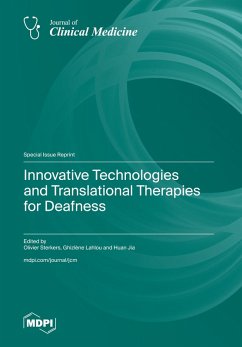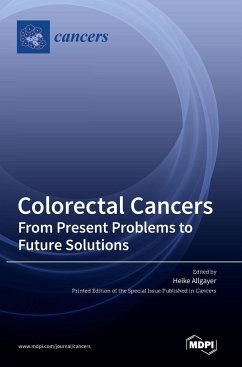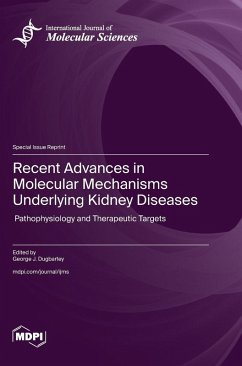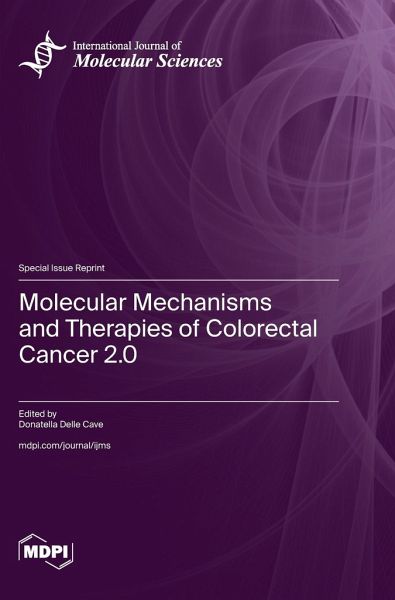
Molecular Mechanisms and Therapies of Colorectal Cancer 2.0
Versandkostenfrei!
Versandfertig in 1-2 Wochen
72,99 €
inkl. MwSt.

PAYBACK Punkte
36 °P sammeln!
Colorectal cancer (CRC) is currently the third leading cause of cancer-related mortality. Transforming growth factor beta (TGF-ß) signaling has been associated with CRC growth and metastasis due to its involvement in proliferation, epithelial-to-mesenchymal transition (EMT), and angiogenesis. The TGF-ß superfamily contains over forty members, including TGF-ßs, Nodal, Activin, and bone morphogenetic proteins (BMPs). Three types of TGF-ß receptors (TGFßRs) have been identified: types 1, 2, and 3. After ligand binding, TGF-ßR2 recruits and phosphorylates TGF-ßR1, which, in turn, phosphoryl...
Colorectal cancer (CRC) is currently the third leading cause of cancer-related mortality. Transforming growth factor beta (TGF-ß) signaling has been associated with CRC growth and metastasis due to its involvement in proliferation, epithelial-to-mesenchymal transition (EMT), and angiogenesis. The TGF-ß superfamily contains over forty members, including TGF-ßs, Nodal, Activin, and bone morphogenetic proteins (BMPs). Three types of TGF-ß receptors (TGFßRs) have been identified: types 1, 2, and 3. After ligand binding, TGF-ßR2 recruits and phosphorylates TGF-ßR1, which, in turn, phosphorylates downstream SMAD (small mother against decapentaplegic) proteins. Phosphorylated SMAD4 translocates into the nucleus, where it activates the transcription of numerous target genes (including SERPINE1, LTBP2, CDKN1A, ARID3B, ATXN1, PTPRK, RAB6A, SMAD7, EHBP1, etc.), acting predominantly as a tumor suppressor gene. Interestingly, alterations in SMAD4 are frequent in metastatic CRC and, together with TGF-ßR2 gene mutations, have been reported as late events able to promote CRC progression. The study of the TGF-ß pathway in metastatic CRC is challenging because of the great genetic heterogeneity of CRC. However, the increasing availability of targeted and whole-exome DNA sequencing techniques makes it possible to identify genetic mutations in complex, dynamic, and heterogeneous clinical contexts and make correlations with clinical outcomes.



